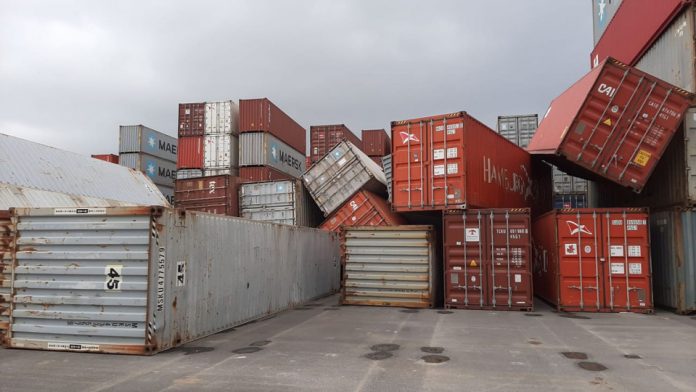Due to climate change, the frequency and severity of wind gusts hitting APM Terminals facilities around the world have increased significantly, according to Maersk-owned container terminal operator, which has developed advanced software that uses Artificial Intelligence to accurately predict weather and help terminals prepare as efficiently as possible.
APM Terminals reported that in 2021, the software reduced to zero container tipping incidents at the Tangier terminal in Morocco.
With the potential to overturn container stacks, gusts of wind can cause serious damage to terminal equipment, containers, and their contents, noted the global terminal operator, adding that dropped containers are a huge safety hazard and result in financial costs for both the terminal and its customers.
“As this is a global problem with both safety and customer impact, we clearly needed to find a better solution,” said Ahmed El Amrani, HSSE manager at APM Terminals MedPort Tangier.
“Until then, we had been moving up to 800 containers every time the forecast said to expect gales. A huge and costly effort with limited effect. The weather forecast was too unreliable, so we kept scrambling at the wrong times or taken by surprise. We needed better data to make the right moves at the right time,” El Amrani continued.
Over the course of six months, the team developed and tested a highly advanced piece of software, which uses 18 on-site sensors to create a highly detailed wind forecast and predicts exactly which containers are at risk at any given time.
“It presents the data in a simple and intuitive dashboard,” pointed out APM Terminals.
The resulting Wind Resilience tool is powered by a smart AI engine that provides much more accurate predictions of wind speed and direction at the terminal and automatically alerts users when predefined wind speed criteria are predicted to be exceeded, according to a statement.







